AS the formal acts of remembrance come to an end for another year, I have been heartened to see how many communities in Cornwall and Devon have gone to great lengths to put on impressive displays of poppies.
Driving around South East Cornwall over the last couple of weeks, I have spotted some very poignant commemorations.
Along the A388 at Hatt, between Saltash and Callington, volunteers created an impressive display on the roundabout.
On the A38 going through Tideford, there was a moving tribute in the form of poppies on the grass verges leading into the village.
On my recent trips to Truro, I have seen poppies fixed to every streetlight heading into the city.
In a small village close to where I live, a beautiful display of knitted poppies on a mesh was carefully placed around the trunk of a lovely old beech tree in the churchyard.
These visual reminders of why we pause to remember at this time of the year are so important.
In our busy lives it is too easy to forget what day of the week it is, let alone stop for a moment to think about the sacrifices made by previous generations.
I can’t remember how or when this trend to decorate the roadside, roundabouts and buildings came about. It’s not something I can recall from my childhood.
All I can remember from back then is taking part in parades when I was in the Cubs, the Scouts and later the Sea Cadets.
We would help on Remembrance Sunday as the civic dignitaries of Truro laid wreaths on behalf of the city.
I am not sure at that age that I quite realised the significance and importance of that act.
I knew why we were there, but I didn’t really fully understand just what price previous generations had paid and how much we had to thank them for.
One of my greatest regrets is not talking to older members of my own family about their experiences. Sadly it’s now too late. None of my grandparents or their siblings is with us anymore.
They hardly ever spoke about the war when I was growing up.
Looking back on it now, I got the feeling they very much wanted to live for the moment and look to the future, rather than hark back to a bleak time in their lives.
But I know many families have personal stories of loved ones who fought for their country and in many cases made the ultimate sacrifice.
During my career on television and radio I’ve been honoured that so many people have trusted me to share some of those stories with a wider audience.
I am often asked what interview or programme I am most proud of.
It’s not the big set piece interview with the Prime Minister or some other famous person.
The work I look back on with the most pride is a series of films I helped to make to commemorate the 100th anniversary of the First World War.
Exploits
We travelled all over the South West and beyond to unearth stories of ordinary people who did some extraordinary things.
There was the nurse from Exeter who went to the frontline in Belgium and saved countless lives.
Elsie Knocker’s wartime exploits driving an ambulance are remarkable; very few women got anywhere near the frontline.
There was Walter Yeo, the sailor from Devon who was horribly disfigured when his ship was blown up. But, thanks to a pioneering surgeon, Walter was able to live out the rest of his life running a pub in Plymouth.
One of the most moving stories we told was that of a family in Cornwall who were left destitute when the husband, who’d been badly injured in action, walked out of the hospital never to be seen again.
He was charged with desertion in his absence and his family lost any financial support.
His body was later found near the hospital and it seems he’d taken his own life after suffering a mental breakdown.
His family never fully recovered from the shame they suffered when everyone thought he’d deserted.
There were lots more stories like this. Producers and researchers tracked down relatives, photographs and historians to help me tell those stories.
We travelled to what had been the frontline in Belgium. I was also privileged to be able to go the war graves of the Devonshire Regiment in the trench where they died in the Battle of the Somme.
I will never forget the words inscribed at the entrance to the cemetery: “The Devonshires held this trench, the Devonshires hold it still”.
Telling those stories left quite an impact on me.
It was only after delving deeply into the lives of those people that I truly started to understand why it’s still important to stop and remember all these years later.
That’s why the visual displays recently have been so good to see.
If they prompt a discussion among a family in the car on the way to school or the shops then they have done their job in making sure we never forget.
I remarked recently in this column about the human capacity to inflict such terrible suffering on fellow humans. We are seeing all too much of it at the moment.
But hopefully we will never again see wars on the scale of the First and Second World Wars.
Maybe the annual act of Remembrance is in some way helping to keep that horrifying prospect at bay.
In the meantime, thank you to all the volunteers who put up the displays of poppies in towns and villages across Cornwall and Devon.
Thank you to those who collected on behalf of the Royal British Legion.
Most importantly, thank you to those who served or continue to serve.
Bye for now!
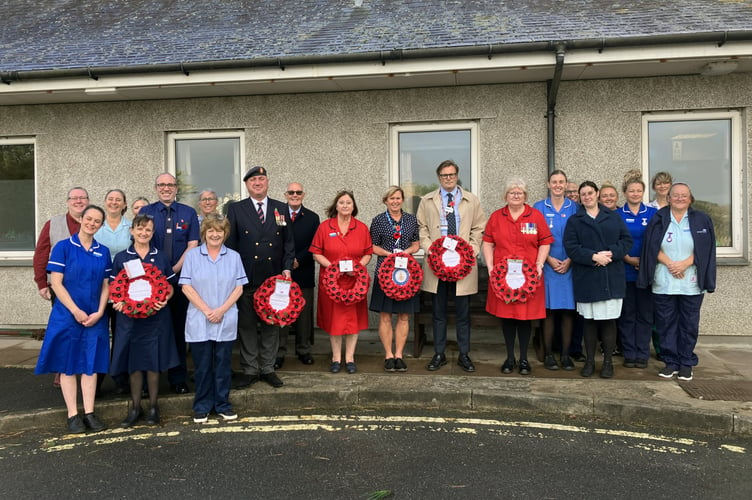
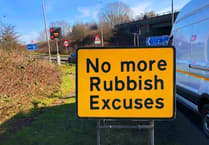
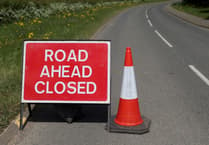
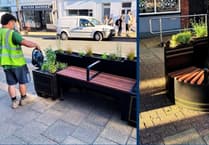
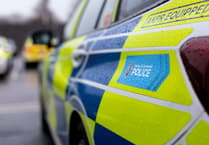
Comments
This article has no comments yet. Be the first to leave a comment.